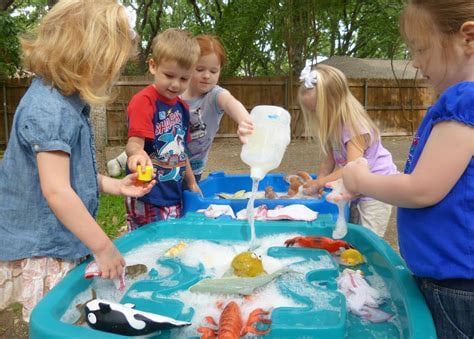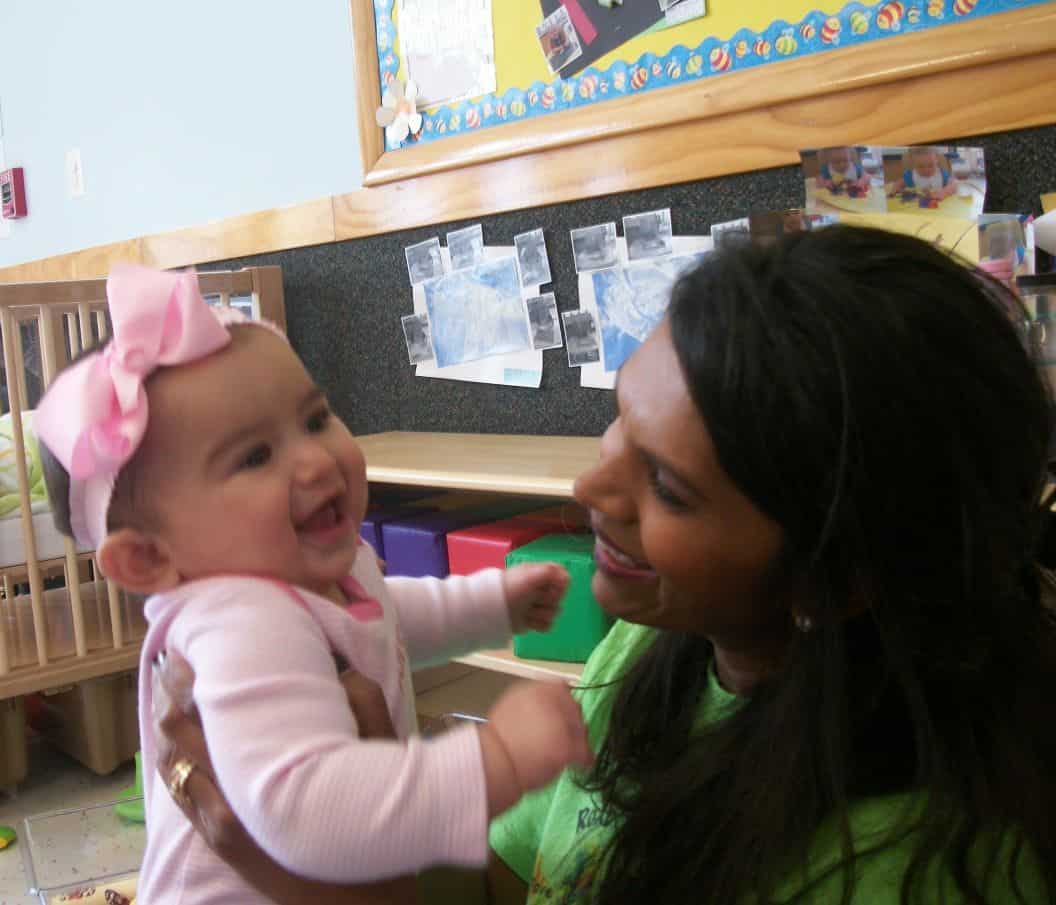Water – Refreshing And Educational for Your Child
How to Handle the Curiosity of a Toddler
“WHYWHYWHY:” why does this word and the never-ending repetition of it make up a toddler’s entire vocabulary? How do we deal with the curiosity that comes from such a simple question? Toddlers are known to be curious little things that never seem to sit still. We can always count on them to be tottering half a room away looking for the next item on the list for destruction. When toddlers continuously ask us the ‘why’ question, they are trying to make sense of the world around them. While it may seem easier to just give them the whole spiel on why it’s raining, that’s not how toddlers’ brains work. They need to make sense of the answers they get one step at a time. They learn new things everyday through observation and little facts. Berate them with a bucket of facts on how the world works and you’ll have one very confused tot.
Stumped by some of the questions your little one asks you? You are definitely not alone. Toddlers ask so many questions that there are a number of books out there just to help parents answer them. Catherine Ripley’s Why?: The Best Ever Question, and Answer Book About Nature, Science, and the World Around You are two great books that you can take advantage of. Brain Quest also has a lot of games with questions and answers for toddlers and parents alike.
Improving Attention Spans
Child development experts say that, on average, a four or five year old child should be able to stay focused on a particular activity two to five minutes times the year of their age. With this in mind, your child should be able to focus between four and twenty minutes depending on the task. If you find that your child is not able to focus on a given task at hand for very long, there may be some things you can try to increase attentiveness.
For one, it takes attention to give attention. If your own attention is scattered, then don’t expect your child to have laser focus. Close proximity with your child and clear instructions on the task are essential in making progress.
You can also decrease distractions by facing said diversion before it becomes a problem. If you sense hunger or fatigue, offer up a healthy snack. Nap time? Put that child to bed! You know that nothing will get done with multiple children in the room? Separate rooms for each child may be an option.
Ensure that your child is getting enough breaks. If your little one is getting restless, ask yourself when their last rest time was. Centers for Disease Control and Prevention research review from 2010 showed that elementary aged children who took breaks from work over the course of the school day ended up concentrating better on schoolwork.
Last but not least, limit that electronic time. It’s almost becoming annoying how often the phrase, ‘limit electronics,’ is being used. Though it’s a good motto to have. The American Academy of pediatrics recommends a maximum of two hours of screen time a day.
Continue reading “Improving Attention Spans”
Why Music Lessons Might be Helpful for Child Development
We’ve discussed ways to get your little one involved in extracurricular activities and one of the ideas mentioned was playing an instrument. Playing an instrument can do a lot of good for your little one. There are a multitude of benefits such as the development of physical and social skills, patience and discipline and a boost in self-esteem.
Physical skills are improved, as certain instruments require movement to be played. Drums require coordinated arm and leg action while violins entail simultaneous movement from both hands. Instruments help develop ambidexterity as well an improvement in coordination.
Social skills can also be improved through music lessons. If it is a group music lesson, then teamwork and communication are required to play as said member of the group. Children need to understand their particular role in the larger ensemble to create music.
Patience and discipline also play a large role in learning to play an instrument. Discipline is used in habitual practice of the instrument. Patience is required, as one will not master an instrument immediately. Many instruments have a steep learning curve. For example, before an instrument can even be played, one has to know how to read music notes.
As a child learns to play an instrument, self-esteem is built. Constructive criticism and the slow progress of getting better will teach your child that hard work pays off.
At Minnieland Academy, children gather to create music, sing songs, clap and dance each day. Age appropriate musical instruments are available in our classrooms.
Continue reading “Why Music Lessons Might be Helpful for Child Development”
What Determines a High Quality Child Care Provider?
Choosing the Best Child Care for Your Child
How to Identify If Your Child Is Being Bullied
Bullying can have long-lasting effects on a person’s life, and in recent years, it has intensified due to the internet. It is painful even to adults to be on the receiving end of hurtful words and actions, so can you imagine how a child feels when they are made to feel inferior during their formative years?
Parents and teachers both need to be alert when it comes to detecting bullying. Bullied children often don’t say anything about the emotional or physical abuse they experience because they are afraid or embarrassed. So, it is up to adults to be vigilant enough to detect when something isn’t right, so they can minimize, and hopefully prevent, the effects of bullying.
The first step is to be more aware of the signs that could indicate your child is being bullied. Here are some common characteristics bullied children display:
- Often lose their things in school, parks, or other places where they are around other children. This could indicate things are being stolen from them.
- May have a sudden drop in grades.
- Have visible cuts and bruises on their bodies that seem to lack explanation.
- Low self-confidence.
- Often appear lonely or have a sudden withdrawal from people.
- May have few friends at school.
- Often complain of sickness to avoid going to school.
- Have a change in attitude or behavior.
- Do not want to join other classmates in activities.
- Do not want to ride the bus with their classmates.
- Resist going to school.
- Do not eat well.
- Do not sleep well or may even cry at night or in their sleep.
- Wetting in bed.
If you have identified signs, it’s time to take action. Talk with other parents and teachers to address your concerns and find the root cause of the bullying. Keep in mind that every bully has some sort of insecurity, pain, or sadness they bear, so they take it on others. If you can help address those problems and build a support group for all of the children, bullying can be minimized.
Mistakes to Avoid When it Comes to Disciplining Your Child
However, as much as we know guidance and discipline are important to our children, there are instances when we may actually be doing it improperly. Here are some examples below to be aware of:
- Yelling at them – Yelling happens, but of course it is not ideal as it can cause our children to fear us. Yelling can convey to our children that we are not listening to their frustrations and encourage shouting as a way to enforce will versus talking through things. As a result, kids can actually become
more rebellious. Talking through why you are upset, or why a behavior is bad helps to teach cause-and-effect and reasoning skills. - Nagging – Do you want to repeat yourself over and over again? Do you love hearing someone repeat themselves over and over again? Neither do your children. Nagging will only frustrate you and encourage your children to tune you out. Creating a system of warnings and results if your requests are not met is another great way of teaching cause-and-effect to your children. For example, “If Mommy has to ask you to do something 3 times, X will happen because you did not listen.”
- Giving in instantly – What’s the use of setting rules only to bend them? Kids learn pretty quickly how we work, and can get very good at outsmarting us! If you always give in to them whenever they whine or cry. There is really no point of putting effort into discipline. Your children will only find a way to break the rules. Hold fast, even when the crocodile tears start to well up.
- Expecting a lot from your children – Kids will be kids and since they only know and experience a little, they will stumble along the way. Expecting too much from them will only discourage them and can make them overly cautious and guarded for fear of disappointing you. Be realistic and understand the limitations of your children. Work with them to encourage them – and of course, reward positive behavior when it occurs, and tell them why.
- Becoming inconsistent – Are you allowing them to slide once in a while? It may seem “kind” for parents to let the kids slide from time to time, but doing so will only make them realize that it is okay to make mistakes or not follow the rules if they feel they can get a mulligan.
- Being negative – Excessive negativity can have a powerful impact on the development of your child. Be mindful of the words you use. Instead of focusing on negative reinforcement for bad behavior, use positive reinforcement for good behavior. Kids love praise from their parents – just be sure to explain the ‘why’ as children are inquisitive by nature while they work on figuring out how the world around them works.
How to Help Your Children Eat Their Vegetables

It’s important for parents to start introducing vegetables and other healthy foods to their children as early as possible. Healthy food choices not only benefit their physical growth, but they also produce healthier brains and more stable emotions. Once your kids get used to eating healthy food, that is what they will begin craving, which means dining will no longer be a battleground of the wills when it comes to eating vegetables.
To help you make your kids eat healthily, here are a few tips:
- Avoid giving food as rewards. Do not let kids get used to receiving food rewards because it can tamper with their perception of healthy foods. If you give kids cake, ice cream, and other sweets for rewards, they will try to work for these cravings.
- Consider healthy options when dining out. Do not let dining out be a reason to let them off the healthy track. Make sure they get their fill of healthy foods wherever you go. Many restaurants’ menus are becoming much more health-conscious.
- Be an example. Show your kids that healthy eating is a good thing. Choose healthy food options for yourself, so that is what they become used to seeing. Kids constantly mimic their parents, so this is a huge key to success.
- Make eating fun. Eating vegetables does not have to turn your kids’ faces sour. Make themed presentations that make their dining experience fun. Arrange the vegetables into happy faces, mashed potatoes into a fun hat shape, etc.
- Implement rules. Kids usually follow the rules when they have been specifically detailed for them. Set reasonable rules for their eating habits like drinking water after every after meal or eating a full lunch everyday.
- Consider how they feel. Do not just push the food down their throats without considering how they feel. Be strategic about how you entice them to eat their vegetables. If they feel too forced or attacked, they may go into resistance mode.
- Let them help. Kids love to do things and participate in activities. If you allow them to help with food preparation and cooking, they will be more likely to eat the food because they had a role in making it.












